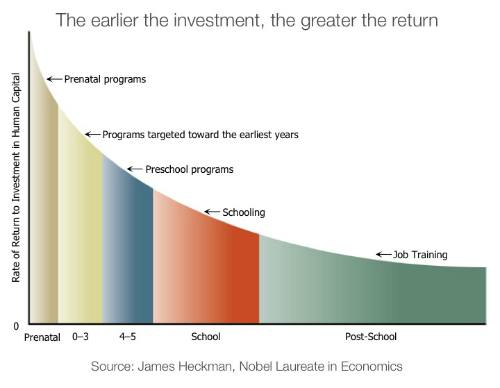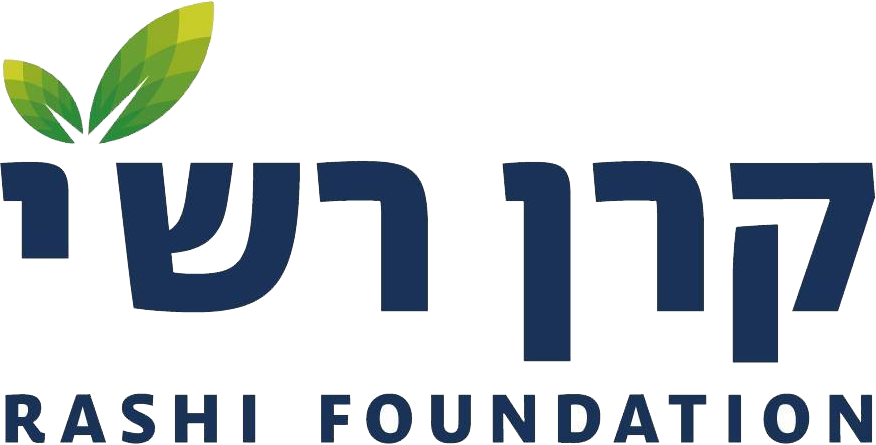“In 2019 Israel there is no equality of opportunity. It starts on your first day and becomes fixed when you enter elementary school. If we want a society that provides opportunities to all, we must start at the earliest age.” – Prof. Manuel Trajtenberg, TheMarker 12.3.2019
Prof. Trajtenberg is a strong advocate of comprehensive reform in early childhood education and care in Israel. A report he published with other researchers at the Technion’s Samuel Naeman Institute calls for designing a new policy that treats this issue as a top national priority.
Quoting the eye-opening research of economist James Heckman, the report argues that the resources invested in the different levels of education are inversely proportional to their significance for children’s development.
The graph known as the Heckman Curve shows that skills developed through early childhood education last for a lifetime. When analyzing a wide variety of life outcomes – schooling, health, crime and so on – the newest research finds 13% return on investment for quality, birth-to-five early education.

At present, Israeli children aged birth-3 get the lowest public budget among OECD countries: only $2,700 a year per child, compared to the OEDC average of $12,400. In order to ‘overturn the pyramid’, Prof. Trajtenberg and his colleagues propose a far-reaching reform that they plan to present to the Minister of Education of the new government after the elections.
The report recommends investing in the first stage in training the daycare staff and raising their pay, which will also help to reduce the gender wage gap and increase the participation of women in the workforce. Next, it is proposed to reduce the group size in daycare centers and the child-to-caregiver ratio, and to increase the accessibility of daycare by building new facilities.
Finally, instead of the current fragmented system of early childhood services, the report introduces the concept of community multi-purpose campuses – “one-stop-shop” where young children and their parents can find all they need in terms of healthcare, diagnosis and treatment, enrichment and parent guidance programs, and more. A similar model is applied in the early childhood centers built by the Rashi Foundation.
Overturning the pyramid requires a major paradigm shift with regard to the significance of early childhood as a key to social mobility, the researchers say. The public, and young families in particular, must urge policy makers to make this shift along with a change in national priorities and investment.












